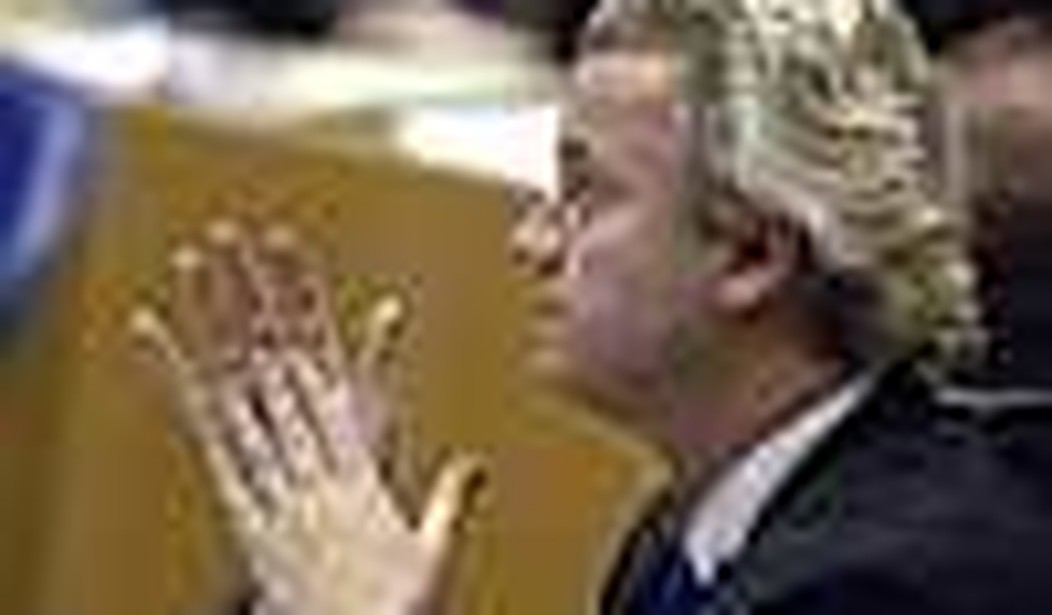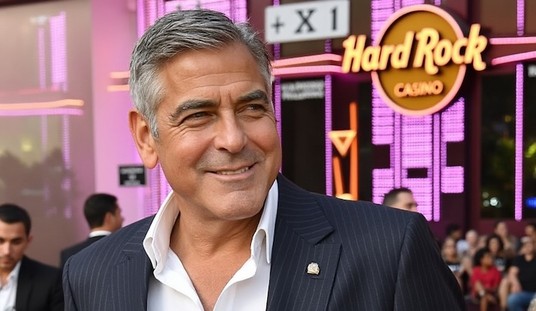When controversial Dutch MP Geert Wilders decided to make Fitna, his hard-hitting movie about Islam, he knew it could lead to big problems. First, he could be prosecuted for insulting a group of believers: Muslims. Second, his film could create a major international controversy, possibly resulting in major riots abroad and at home.
To do what he could to ensure limited fallout, Wilders made the movie in such a way that he could not easily be accused of insulting Muslims personally. Although the film is critical of Islam and depicts it in a highly negative light, it is not negative about individual Muslims. It is a loophole used by Wilders and many before him.
Some Dutch Muslim organizations nonetheless responded with outrage to Fitna and asked Dutch prosecutors to file charges against Wilders. Prosecutors looked into it but concluded that they did not have a strong case against Wilders. They informed the organizations and individuals involved about their decision, and that was the end of it. Or so most thought.
The organizations, made up of immigrants, did not take no for an answer and went to court. They asked the judge to force the justice department to prosecute Wilders on the basis of anti-insulting statutes as established by Dutch law. To everyone’s surprise, the judges agreed with the groups and ordered prosecutors to file charges against Wilders, the most controversial and well-known member of the Dutch parliament.
Wilders rightfully responded with outrage to the news. It signaled, he said, the end of freedom and the end of the long-standing Dutch tradition of welcoming controversial figures with controversial opinions. The country that was once a safe haven for figures like Spinoza, who were not tolerated in any other country, now prosecutes those with strong opinions. It is something our forefathers could not have dreamed of.
He was not alone. Dutchmen and foreigners were angered by the court ruling, declaring that no self-respecting society would ever agree to prosecute a man who simply says what he believes. Especially a man who, although often not correct, has the backing of a sizable part of the population and has proved able to discuss those issues worrying society tremendously in a rational manner.
Wilders is in serious trouble. Although prosecutors thought they did not have a strong case against him, judges — and those are the ones who truly matter in the Dutch legal system — think differently. If a court decides that an individual has to be prosecuted, chances are he’ll be convicted. The sentence could be a fine, but a short imprisonment is possible as well.
Two laws function as the foundation for the criminal case against Wilders. The first is a highly controversial law that forbids “insulting or denigrating God.” The second is a law criminalizing the insult of groups on the basis of religion, race, gender, etc. Both laws are limits on the freedom of speech, which is not considered limitless according to the Dutch constitution.
Freedom of speech certainly is important (it is a constitutional right), but the constitution itself says that the government can limit it to “protect and/or guarantee order.” Over the years, more laws limiting the freedom of speech have been added, eventually resulting in a legal ban against just about every possible insult. Not only is it illegal to insult the queen or a “befriended head of state,” it is also illegal to insult groups or individuals.
Freedom of speech no longer exists in the country once famous for its tolerance and freedom.
Although 53% of the Dutch support the prosecution of Wilders, 47% do not. Dutch society is divided about his prosecution. This is confirmation that the country is deeply divided along ideological and cultural lines.
Most of the 47% of Dutchmen who oppose the prosecution of Wilders are “rightists” (Dutch liberals — not American liberals who we call “progressives” here — and conservatives). These groups are also often sympathetic towards Wilders. The VVD is currently the biggest conservative (or liberal) party in the Netherlands, but it is feeling the heat from Wilders’ PVV.
VVD leaders are aware of the danger and have stepped up their criticism of Wilders in recent months. The party’s leader, Mark Rutte, has railed against Wilders on a variety of occasions, accusing him of being a promoter of instability and a man who cares more about attention than about getting things done. The attacks were an attempt to isolate Wilders, and to convince conservative voters that the VVD is the party that can govern on conservative principles.
After the court ruling became public, however, Rutte came to Wilders’ defense. He asked Justice Minister Ronald Plasterk to abolish laws that limit the freedom of speech. Plasterk responded furiously, arguing that now is not the time for such a debate.
Plasterk may be right. And Wilders certainly is a man who enjoys stirring up controversy and causing outrage after outrage. His prosecution will also undoubtedly help him in the polls: 47% of the Dutch oppose it, meaning they may vote for him just to make clear to everyone else that prosecuting those with differing opinions is not acceptable. The most recent poll already shows that the controversy has made Wilders more rather than less popular: while his party would have received 17 seats in the 150-seat parliament if elections were held one week ago, it would now receive 20, which is eleven more than it currently has. This would make his party exactly as big as the VVD, which would also get 20 seats today.
However, this case is not about Wilders nor about party politics. It is not even about religion. Rather, it is about the very core of our liberal democratic system, and about the Dutch tradition of accepting and tolerating all opinions, no matter how politically incorrect. Whether one agrees or disagrees with Wilders is irrelevant; if he is found guilty this time, someone else will be the victim of these un-Dutch laws months or years from now. Soon, no one will have the courage to say anything that someone may find insulting.
Wilders is more often wrong than right, but he is correct when he says that freedom of speech is more valuable and more important than an imagined “right” not to feel insulted. His prosecution has already ignited a major firestorm; it seems possible that the result of the court ruling will, ironically, be that laws limiting the freedom of speech will be abolished and the Dutch can once again have a society in which everyone feels welcome and accepted. No matter how controversial one is.
If not, things will go downhill from here, probably resulting in more limitations and less freedom. This would be a terrible result for those who love freedom — whether they agree with Wilders’ views or not.









Join the conversation as a VIP Member